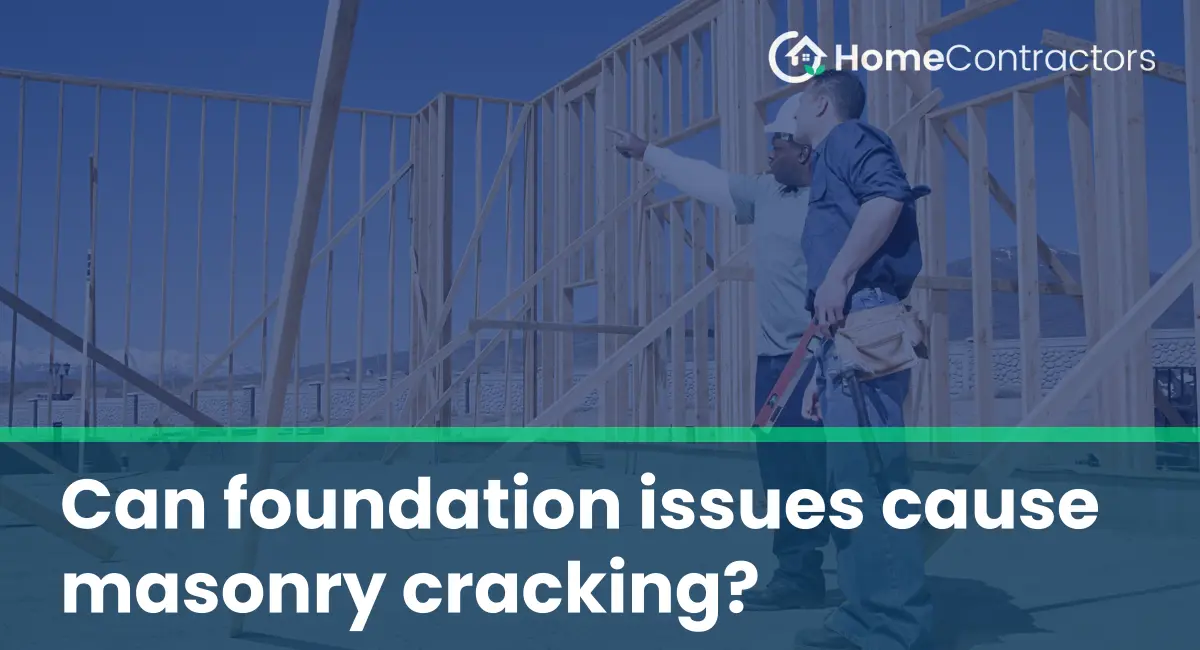Masonry cracking is a common problem that homeowners may encounter. It can occur due to a range of factors, including foundation issues. In this article, we will explore how foundation problems can lead to masonry cracking and discuss what homeowners can do to address these issues.
Understanding Foundation Issues
Before delving into how foundation issues can cause masonry cracking, let’s first understand what these issues entail. Foundation problems can occur as a result of several factors, such as soil movement, poor construction practices, or natural disasters like earthquakes. These issues can compromise the stability and integrity of a building’s foundation, leading to various structural problems.
The Link Between Foundation Issues and Masonry Cracking
1. Settlement and Shifting
One of the primary ways foundation issues can cause masonry cracking is through settlement and shifting. When a foundation settles or shifts, it places additional stress on the masonry walls, resulting in cracks. As the foundation moves, the walls above may not properly adjust, leading to tension and compression forces that cause the masonry to crack.
2. Uneven Loading
Another factor to consider is uneven loading caused by a compromised foundation. When a foundation becomes uneven due to settling or shifting, it can distribute weight unevenly across the masonry walls. This unequal distribution of pressure can lead to cracking as the walls struggle to bear the load.
3. Moisture Intrusion
Foundation problems often lead to moisture intrusion, which can weaken masonry structures. When a foundation settles or shifts, it can create gaps or openings that allow water to seep into the masonry walls. Over time, this moisture can lead to deterioration and cracking, particularly in materials like brick or stone that are susceptible to water damage.
4. Lateral Pressure
Lateral pressure is another issue that can contribute to masonry cracking. When a foundation experiences excessive lateral pressure from soil or hydrostatic forces, it can push against the masonry walls. This pressure can cause the walls to bow or bulge, resulting in cracks.
Addressing Foundation Issues to Prevent Masonry Cracking
1. Regular Inspections
To prevent masonry cracking caused by foundation issues, homeowners should schedule regular inspections of their foundation. A professional inspector can identify early signs of settlement, shifting, or other problems that could lead to structural issues. Addressing these problems promptly can help prevent masonry cracking.
2. Foundation Repair
If foundation problems are detected, it is crucial to seek professional foundation repair services. A qualified contractor can assess the extent of the issue and propose an appropriate repair solution. Common foundation repair techniques include underpinning, installation of piers or anchors, and foundation stabilization methods. Repairing the foundation will alleviate the stress on the masonry walls and reduce the risk of cracking.
3. Waterproofing
Since moisture intrusion is a common consequence of foundation problems, it is essential to address waterproofing concerns. Applying water-repellent sealants or coatings to the masonry can protect against water damage and prevent cracking caused by moisture infiltration.
4. Structural Reinforcement
In some cases, additional structural reinforcement may be necessary to prevent further masonry cracking. This can involve adding steel reinforcements or installing braces to provide extra support to the weakened walls. A structural engineer can provide guidance and recommend appropriate measures based on the specific situation.
Foundation issues can indeed cause masonry cracking. Settlement, uneven loading, moisture intrusion, and lateral pressure are all factors that can lead to cracks in masonry walls. To prevent such issues, regular inspections, timely foundation repair, waterproofing measures, and structural reinforcements are crucial. By addressing foundation problems promptly and taking necessary actions, homeowners can protect their masonry structures and maintain the integrity of their homes.
